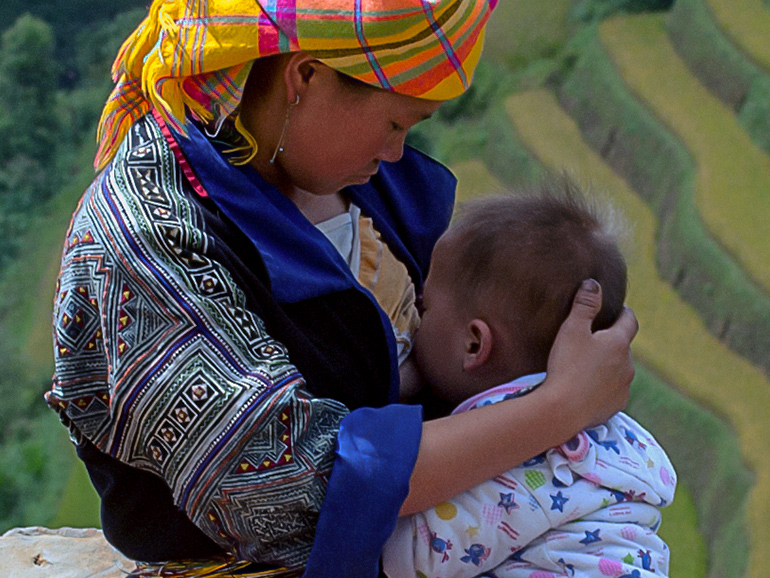#Marchis4Nutrition: What if moms had access to quality and comprehensive healthcare?
In honor of National Nutrition Month, 1,000 Days is running its annual #Marchis4Nutrition campaign to amplify the critical role the world’s mothers play in nourishing the next generation. During the coming weeks, we will be imagining a world in which moms have the support they need to give their children a healthy start to life. This week we’re asking:
What if moms had access to quality and comprehensive healthcare (before, during and after pregnancy)?
A world in which moms have access to quality and comprehensive healthcare is one where every child and mother survives and thrives.
Without comprehensive coverage that includes, maternity care, childbirth and pediatric services, a woman and her baby do not receive the health services they need. In turn, they are put at greater risk for serious problems including low birthweight, preterm birth, and even death.
In the U.S. and around the world, access to healthcare is vital to reduce the number of deaths related to childbirth. The United States has the worst rate of maternal deaths among wealthy countries. According to a joint ProPublica and NPR investigation, between 700-900 women in America die each year from childbirth or pregnancy related conditions. Sadly, many of these deaths could have been prevented with better care.
In low- and middle-income countries, 1 in 5 babies is born too small (with a low birth weight) resulting in 20% of newborn deaths. Again, having access to proper healthcare before, during and after pregnancy could reduce the infant death rate.
“If moms had access to affordable and quality prenatal care, more moms would survive childbirth and be free from lifelong injuries.”
David Beckmann, President of Bread for the World
Whether they are expecting a baby or not, all women and their families need comprehensive healthcare from a hospital, healthcare provider or community health center. Once a woman becomes pregnant she also needs healthcare coverage for maternity care, breastfeeding services (including counseling and supplies), nutrition education, folic acid supplements and weight management during pregnancy, as well as health screenings for conditions such as anemia, gestational diabetes and post-partum depression.
“Since I became pregnant with my last daughter… I took everything I learned into account and during my pregnancy I attended the health center to receive prenatal care where I was provided with iron and folic acid which I consumed with full knowledge of its importance,”
Vitalina de Leon Santos, ALIANMISAR in Guatemala, read her full story here.
We also need to invest in ensuring healthcare is high-quality and meeting the needs of a community. More trained healthcare workers and better facilities save lives. This requires national policies and guidelines and strong leadership at country-level to prioritize the strengthening of health systems. This also requires healthcare to be affordable. Each year, nearly 100 million people worldwide are pushed into extreme poverty because they must pay for health expenses out of their own pockets.
Moms shouldn’t have to choose between health or poverty. They shouldn’t have to choose between their own health or their child’s health. They shouldn’t have to choose between seeking health treatment or eating nutritious foods. In a world where moms have access to high-quality and comprehensive healthcare (before, during and after pregnancy), these are not choices that they would have to make.
Join the #Marchis4Nutrition conversation on Facebook and Twitter this month and tell us what you think: What does the world look like if moms have access to quality and comprehensive healthcare?


